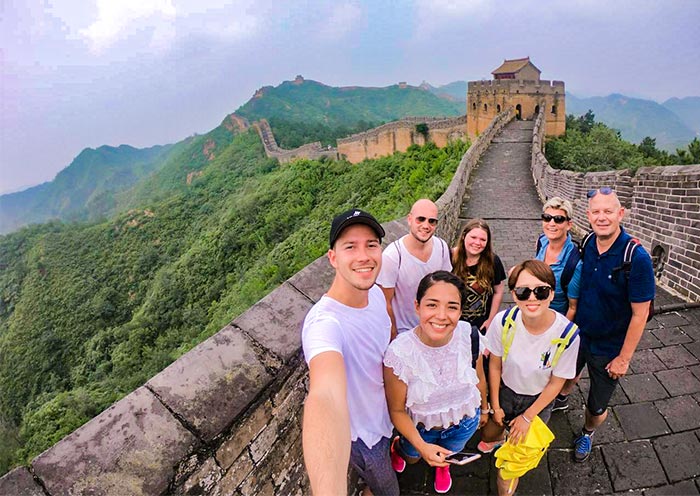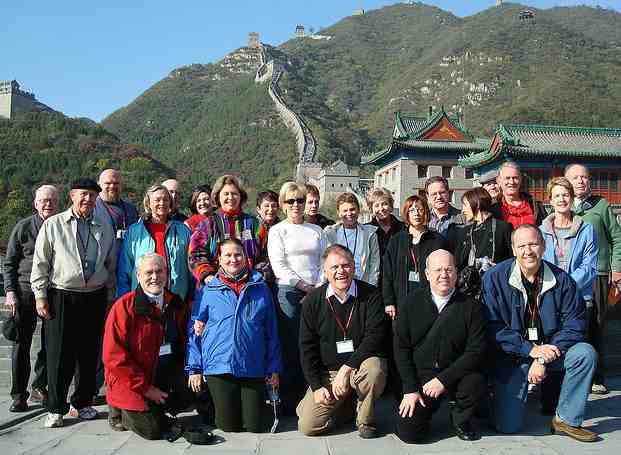20 Free Ideas To China Famous Food Destinations
20 Free Ideas To China Famous Food Destinations
Blog Article
Top 10 Tips For Bargaining Etiquette For Shopping In China
1. Offer between 50-70% below the amount you quoted Then, begin negotiating. Be firm but polite to show you're serious.
Pro The advantage is that you can put in your position without causing offense to the seller.
Con: A low starting price can be a source of frustration for sellers in particular for items that have a smaller margin.
2. Understanding the Market Value
Do your homework to find the price that is typical for the item you are looking to purchase.
Pro: You will not be scammed, and you'll have confidence in the process of negotiating.
Cons: Researching hand-crafted or unique products can be time-consuming particularly if they're difficult to locate.
3. Show Genuine Interest
Tips: Sellers are more inclined to negotiate when they feel you're really interested in buying.
Pro: It helps build relationships and increases the chances of getting the best deal.
Pro: A high-energy attitude could indicate a willingness to shell out more money, thereby weakening your position.
4. Walking Away Strategically
TIP: Remain calm when the price isn't dropping. You may get a contact from the seller offering an offer higher.
Pro: This strategy is usually effective in obtaining the lowest price.
Con: The seller might not be able to reduce prices for certain items such as those in high demand.
5. Learn Basic Mandarin Phrases
Tip: Phrases like "Tai gui le!" (Too expensive!) You can also (Too expensive!) say "Pianyi ba yidian" (Can you lower the price?) It is important to put in the effort.
Pro: It makes the negotiation more personal and may frequently soften the selling position.
Con: The use of limited phrases may be detrimental in more complicated negotiations.
6. Be calm and patient
Negotiations take time. Be sure to avoid appearing anxious by retaining a calm demeanor.
Pro Sellers reward calm and persistent buyers with better bargains.
Con Cons: Time and effort are required, especially in crowded market.
7. Bring Cash
Tips: Sellers might be more willing to lower costs for cash transactions instead of using digital payment methods.
Pros Cash discounts can be secured fast, especially for small vendors.
Con: Carrying large sums of cash can expose you to risk in places that have a large number of people due to pickpockets.
8. Discounts for Groups
Tips: If you are buying several products, ask for an offer for bulk purchases.
Pro: Increases bargaining power and helps you negotiate more for your money overall.
Cons: You might need to purchase additional items which don't always meet your needs.
9. Do not be afraid to Say No
TIP: Never decline a price, and leave if you are able to determine that the seller did not reduce the price.
Pros: It reduces buyers' remorse. It also helps you stay in your financial limits.
Cons: You may miss out on items you've always would have.
10. Beware of Bargaining
You should not bargain at department stores or expensive boutiques.
Pro: Reduces embarrassment, and maintains cultural respect.
Con: Limits your chance to negotiate in some settings.
Bargaining in China offers advantages
Savings: You can save a lot of money by negotiating the price.
Cultural Experience: Bargaining provides an opportunity to learn about the local customs and traditions.
Personal interaction - Forms bonds with local vendors.
The cons of bargaining in China
Time-Consuming: Haggling can take a long time, particularly for those who aren't familiar with the process.
Language Barriers: Communication can be difficult if you don't know Mandarin.
The process of bargaining can be stressful for some people.
These tips will help you navigate Chinese markets confidently and experience the excitement of haggling. Check out the top learn the history of this place for website tips including guanlin temple, blue dragon temple, chinese stone lion the common ornament in chinese traditional architecture, chinese kites a phoenix shaped kite, ancient dapeng fortress, wuxi a shining pearl of taihu lake, entertainment in hong kong, snow beer the best selling beer in the world, entertainment in beijing, shopping in fuzhou and more.
Top 10 Tips On Fees And Photographic Rules When Visiting Chinese Temples
1. It is possible to plan your budget by looking up ticket prices before you go to the venue. To plan your budget look up ticket prices before you leave.
Pro The benefit is that you will be able to calculate the correct amount in cash or electronic payment and stay clear of unpleasant surprise.
Con: Unexpected costs, like exhibition fees could be incurred.
2. Bring cash or digital payment
You are able to pay only cash at temples or using the most popular Chinese payment methods like WeChat Pay and Alipay.
Pro: Quick entry and payment with no the need for delays.
Cons: There are few options for foreigners unfamiliar with or unaccustomed to digital payment apps.
3. Be on the lookout for signs for photography
Find signs to indicate the location where photography is allowed. Many temples restrict photography inside temples or in the vicinity of sacred artifacts.
Pro: Prevents accidental disrespect and rule-breaking.
Con: Certain rules differ in specific areas of a temple. Attention to detail is necessary.
4. Avoid Flash Photography
Even in areas where it is permissible to take pictures, you should avoid using flash as this can result in damage to artifacts, or disturb worshipers.
Pro: Protects temple's artwork and its environment.
Con: Insufficient light can cause less than ideal photos.
5. Respect worshippers' privacy
It is not advisable to take photos of religious ceremonies or individuals who are praying without their permission.
Pro: Shows an understanding of culture and respect for privacy.
Con: Your ability to capture the ambience of a temple might be a bit limited.
6. Follow Drone Restrictions
Tip - Drones are usually prohibited within temples. If you are planning to use a drone for aerial photography, check the local laws.
Pro: No fines and no confiscation.
Con: Limits the opportunity for unique photography angles.
7. Be Prepared for Additional Fees
A tip: Some temples charge an extra fee for the use of professional equipment, such as DSLRs or Tripods.
Pro: Ensuring you capture high-quality images legally.
Con: Increases the overall cost of a trip.
8. Dress sensually
Tips: Respectful attire is important in temples. Inappropriate clothing could lead to being denied entry or a refusing entry.
Pro: It shows respect for the environment of religion and allows you to blend into the community.
Con: Extra preparation could be required, particularly during hot weather.
9. Beware of crowds for photos
Tips: Go early in the morning or later in the afternoon, to avoid crowds, which makes it easier to take clear photographs.
Pro: Enhances the quality of images and experience.
Con: Needs to adjust your schedule, which might not always be convenient.
10. If not sure, request permission
Tip: When in doubt regarding photography regulations, consult temple staff or signs for clarification.
Pro: You'll be able to be sure to avoid accidental rule violations.
Con: Language barriers might make communication difficult.
Pay attention to Fees and Photographic Rules.
Respect for culture: Follow the local customs or religious practices.
Artifact Preservation: Guards fragile structures and artifacts from damage.
Positive Experiences Does not engage in confrontation with worshippers or temple staff.
Legal Compliance: Prevents fines and penalties for violating photography regulations.
Cons of Following Fees and Photographic Rules
Additional fees Additional costs: Entry fees and photography permits may be a significant amount.
The limitations of creativity can make it difficult to capture the perfect image.
Language Barriers.
Research can be time-consuming. Preparing ahead of time requires extra effort.
By adhering to the photography and fees rules, you can ensure a respectful, lawful, and enjoyable visit to China's magnificent temples as well as preserving their sacred and cultural values. View the most popular explore this cultural treasure for website recommendations including tours for the disabled, the top 4 movies about kung fu and chinese culture, the color of dress in china, temple of confucius one of the three largest ancient architectural complexes, wang zhaojun one of the four beauties in ancient china, tours for the disabled, chinese festival cuisine, shanghais winter wonderland festivals lights and fun, shanghais winter wonderland festivals lights and fun, ancient football in china cuju in ancient china and more.